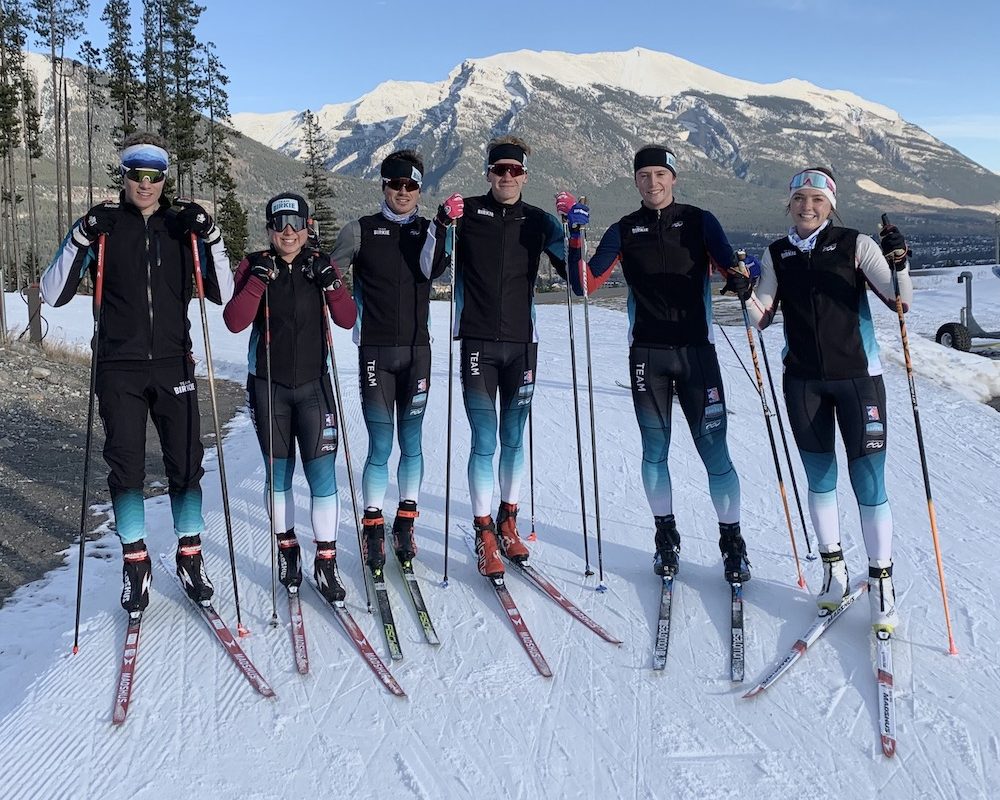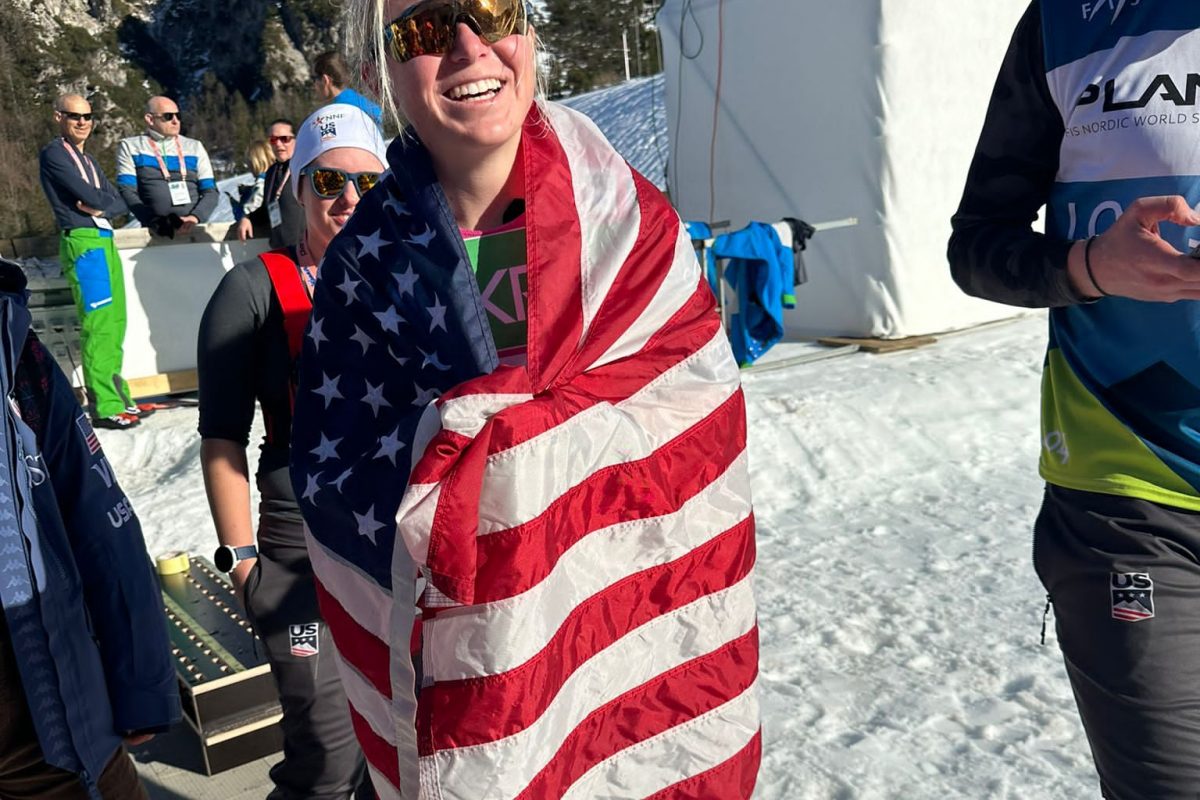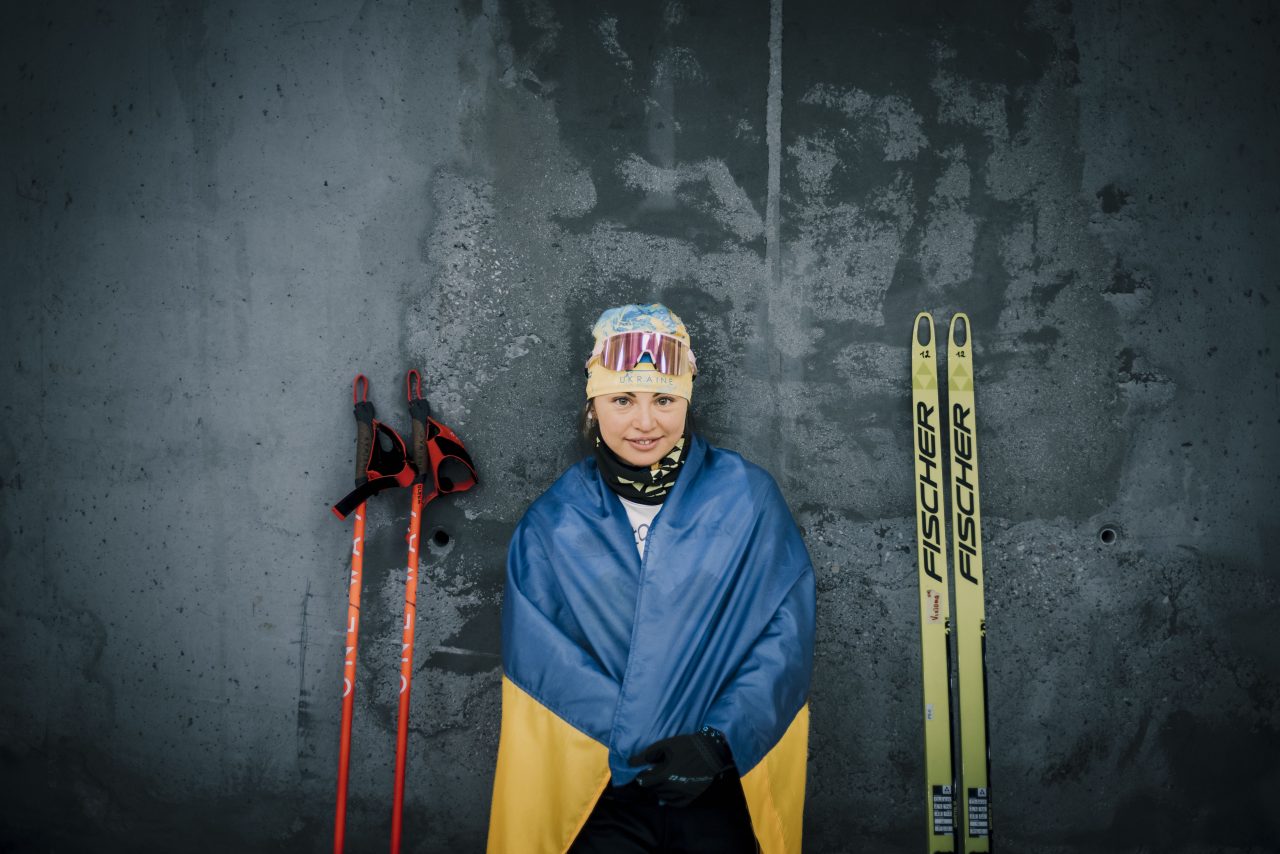
PLANICA, SLOVENIA — If Victoriia Olekh isn’t having her best showing at the World Ski Championships here, she has a good reason: war.
Olekh is from Ukraine. The Russian invasion of her country started just as she finished racing at the Olympics in Beijing last year.
The Russian military has mined the fields and forests where she used to work out, Olekh said. Air raid sirens went off in the middle of running workouts, forcing her indoors, she added. And one of the training centers where Olekh practiced since childhood, in the regional capital of Chernihiv, was destroyed by missiles, Ukrainian officials have said — part of a campaign that, according to human rights advocates, saw Russians kill dozens of civilians in attacks on an apartment complex.
“We go to bed not knowing if we’re going to wake up,” Olekh said. “We’re still feeling panic.”
Nonetheless, Olekh and her Ukrainian teammates have continued training and competing abroad with help from the global skiing community. They’ve fielded a team of six at the World Championships here, where Olekh said she heard cheers of “Slava Ukraini” — glory to Ukraine — during a race and when she carried the flag at the opening ceremony last week.
“I feel solidarity from the other countries,” Olekh said. “I want to thank the world for their support, and I want to thank the Ukrainian military for defending our country.”
That military includes at least three Ukrainians who have competed in the Olympics in snow sports, according to Julia Syparenko, head of the country’s ski federation. Another retired Ukrainian skier, a training buddy of Olekh’s, was killed in the war, she said, and she knows of two other skiers whose homes were destroyed.
Olekh spoke in a 90-minute interview, conducted through a translator, at her residence at World Championships — the first in-depth comments from a Ukrainian athlete here about the war. They come as an intense debate plays out in the global sports world about whether to allow Russian and Belarusian athletes — who have been banned from competing by an array of international sports organizations — to compete at the Olympics under a “neutral” flag.

Olekh was firm in her opposition, and Syparenko, in a separate phone interview, was too. Olekh said it would be “impossible” for her to compete against people who back the Russian war.
“Open your eyes,” she said. “How can you even look at us when you support a government that’s invaded another country?”
Some — but not all — of Russia’s cross-country’s skiers have publicly endorsed the war and the country’s president, Vladimir Putin.
Alexander Bolshunov, who won three gold medals at the Beijing Olympics, faced a backlash after he appeared on stage with Putin at a rally last March, and his glove sponsor ended endorsement deals with its Russian and Belarusian athletes.
Asked about his position on the exclusion of Russians from International Ski Federation races next year, the federation’s president, Johan Eliasch, told reporters here that “this is a very difficult topic.”
“You can’t choose where you were born. And you can’t separate the nation-state from the athlete,” he said. “On the other hand, we have a very difficult conflict to deal with.”
Eliasch added: “It is vital that we don’t let athletes be weaponized for political purposes — that’s just killing sport, which is supposed to be neutral, non-political.”
Olekh, 29, came from an athletic family: Her mother was a runner and wanted to be a competitive cross-country skier, but her grandfather was worried about the effects of lugging heavy ski bags around.
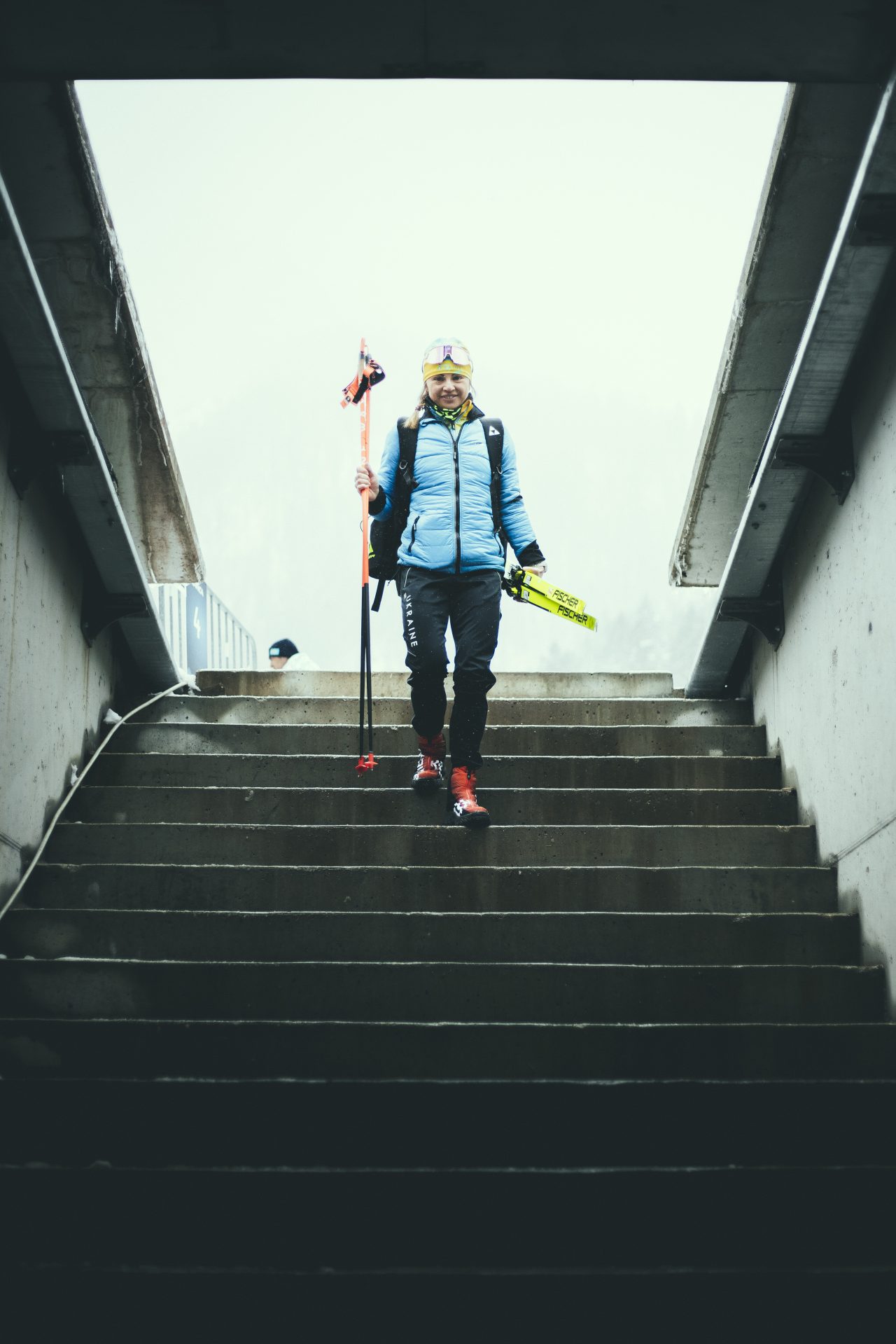
Olekh has competed internationally for a decade, though the Beijing Olympics were her first Games. Her best finish was a 58th place; she earned praise from one of her coaches for finishing a race with a bloody nose.
Afterward, the war came to her community, Konotop, where some of the city’s women made headlines for threatening to put a curse on Russian soldiers — one that would render them impotent.
The city isn’t far from the border between the two nations. In the first days of the war, there was a tense standoff as local authorities negotiated with the Russian military over control, Olekh said.
Video posted by the New York Times showed crowds hurling insults at Russian soldiers — one of whom walked by holding a grenade in each hand. Olekh isn’t sure how intense the fighting was in Konotop, and she doesn’t know of any victims, she said — but friends showed her photos of burned cars and dead people inside them.
The Russians ultimately left Konotop. But the war still turned Olekh’s life upside-down.
“We were surrounded from all four sides. There were tanks in the city,” she said. “There was panic, food shortages, blackouts on a regular basis — things were very scary and unstable.”
In the early days of the war, Olekh said, training was difficult. Her mother, she said, would sometimes stand at the front door and block Olekh from going outside to run because of the danger. She kept from going stir-crazy by using a neighbor’s stationary bike.
The Ukrainian national team reorganized in June, after losing roughly a month and a half of training, Olekh said.
Since then, the group has spent much of its time training and racing abroad, with support from other ski associations and training centers in nations like Italy and Estonia. Some of its athletes and their families have completely moved out of Ukraine, said Syparenko, the head of the Ukrainian Ski Federation.
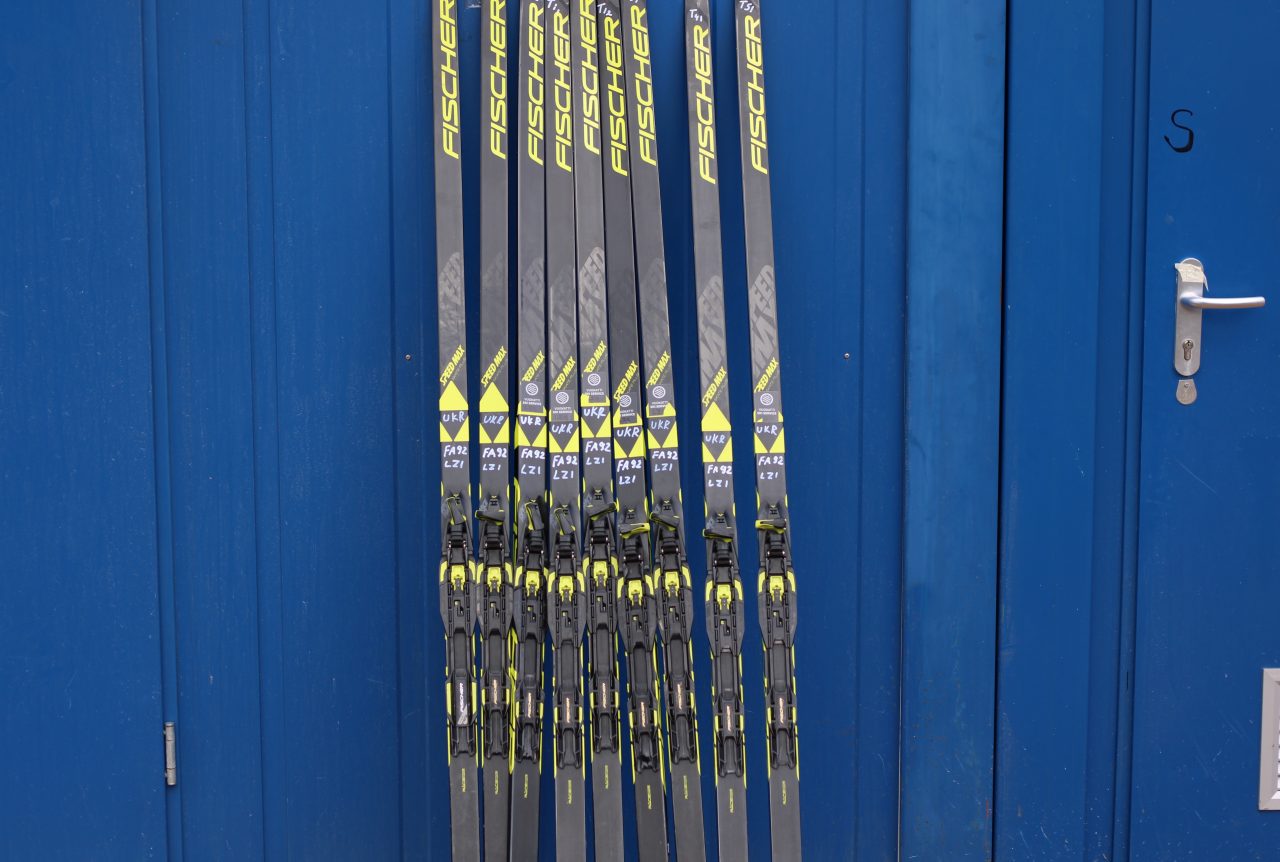
She said that aid from other countries, along with a multi-million-dollar solidarity fund from the International Olympic Committee, has been indispensable for all of the sports under her federation’s umbrella, which includes downhill skiing, snowboarding, ski jumping and others.
“Every step of the way, we got as much support as people could provide,” she said.
Estonia shares a border with Russia and was part of the Soviet Union until 1991, so it was natural to try to help the Ukrainian athletes, said Kristjan Koll, the Estonian Ski Association’s executive director.
The Estonian association is still recovering from a doping scandal and is tight on cash. But it worked with the Ukrainians to find inexpensive housing for a training camp in Estonia and also helped them secure visas, Koll said in an interview.
He plans to discuss future partnerships with Syparenko in advance of next season, when perhaps the two nations could hold training camps together for their cross-country ski teams, he said.
“For Estonians and Latvians, Lithuanians, Poland, we understand the immediate threat. What happened to Ukraine, in the same way — it could happen to us,” Koll said. He added: “We 100% support the ban of the Russian athletes.”
Olekh said she’s grateful both for the foreign countries that have hosted the Ukrainian athletes, and for the support staff in her home country who have helped her team with logistics.
That was especially challenging for the male Ukrainian skiers, since the country has barred most men from leaving the country in case they’re needed for military service, Olekh said.
“We’re happy to represent our country, even if we’re not in our best shape,” she said. “We’re doing our best, and we’re so thankful that we’re able to participate.”
Nathaniel Herz
Nat Herz is an Alaska-based journalist who moonlights for FasterSkier as an occasional reporter and podcast host. He was FasterSkier's full-time reporter in 2010 and 2011.


